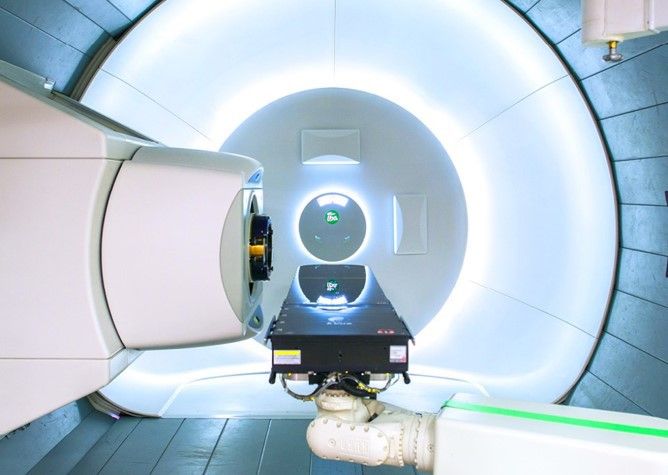Hungary When identifying the key challenges of the Hungarian healthcare system, we can highlight the following: 1. Funding issues and suboptimal usage of resources. 2. Workforce emigration impacting healthcare stability. 3. Inadequacies within the general practitioner system. 4. Deficiencies in patient pathway management and digitalization. While acknowledging the complexity of these challenges, the two Hungarian partners in the project, TritonLife Group Private Hospitals Ltd., and the Central Transdanubian Regional Innovation Agency, aim to establish a Living Lab, that will aim to drive substantial progress specifically in optimizing resource utilization and enhancing patient pathway management through digitalization. By concentrating their efforts on these areas, they aspire to creat meaningful improvements within Hungary’s healthcare landscape, setting the stage for enhanced efficiency and better patient care. Slovenia The Chamber of Commerce and Industry of Slovenia (Gospodarska zbornica Slovenije) – GZS MedTech Slovenija and the General Hospital Jesenice, with the support of the Health Insurance Institute of Slovenia (Zavod za zdravstveno zavarovanje Slovenije), are establishing a living lab on Slovenian territory. That’s why they are collaborating on an Interreg CENTRAL EUROPE Programme Health Labs4Value project. The goal of the Slovenian Living lab is to improve the care of patients who are discharged from the hospital after an injury and are awaiting rehabilitation. This is when patients are often left to their own. Continuous care, better communication with healthcare professionals, and active involvement in the treatment process, even when discharged home, could lead to faster recovery and a return to everyday life. Positive results are also expected at the cost level. 
 Germany Germany is participating in the HealthLabs4Value project with two partners. Carus Consilium Sachsen GmbH initiates, manages and coordinates sustainable concepts to secure and further develop healthcare, especially in regions outside of the still mostly well-supplied metropolitan areas. As a supra-maximal care hospital the University Hospital Dresden is open to the people of the region and beyond in all areas of inpatient and outpatient healthcare. With its expertise, the University Hospital Carl Gustav Carus is an important partner for doctors in private practice as well as hospitals in Dresden and eastern Saxony. Together, they aim to build an active living lab in which their digital solutions can be continuously adapted and further developed to meet the needs of their users. They are paying particular attention to the problematic areas of data protection and security. The aim is to integrate digital solutions into everyday clinical practice.
Germany Germany is participating in the HealthLabs4Value project with two partners. Carus Consilium Sachsen GmbH initiates, manages and coordinates sustainable concepts to secure and further develop healthcare, especially in regions outside of the still mostly well-supplied metropolitan areas. As a supra-maximal care hospital the University Hospital Dresden is open to the people of the region and beyond in all areas of inpatient and outpatient healthcare. With its expertise, the University Hospital Carl Gustav Carus is an important partner for doctors in private practice as well as hospitals in Dresden and eastern Saxony. Together, they aim to build an active living lab in which their digital solutions can be continuously adapted and further developed to meet the needs of their users. They are paying particular attention to the problematic areas of data protection and security. The aim is to integrate digital solutions into everyday clinical practice. 
 Czech Republic In the Czech Republic, our main partners are the Liberec Regional Hospital and the DEX Innovation Center, which together addressed experts from SMEs – Mediware and Bindworks, representatives of the Technical University of Liberec and the Czech Technical University in Prague, but they did not forget about non-profit organizations in the form of the Czech Association of Paraplegics and especially representatives of doctors and other staff from the Liberec Hospital. They believe that with a great team of experts, they can bring changes not only in the spinal unit of the Regional Hospital Liberec. Poland Polish project partners Medical University of Lodz and Central Teaching Hospital of the Medical University of Lodzaims, aim to establish their living lab in order to streamline the work of medical and non-medical staff in administration and patient service through digitization and implementation of new technologies such as biometric signatures. Their main challenges mentioned by the stakeholders during the Focus Group meeting were as follows: 1) queues; 2) data quality; 3) data transfer; 4) the solution must answer specific needs; 5) cybersecurity.
Czech Republic In the Czech Republic, our main partners are the Liberec Regional Hospital and the DEX Innovation Center, which together addressed experts from SMEs – Mediware and Bindworks, representatives of the Technical University of Liberec and the Czech Technical University in Prague, but they did not forget about non-profit organizations in the form of the Czech Association of Paraplegics and especially representatives of doctors and other staff from the Liberec Hospital. They believe that with a great team of experts, they can bring changes not only in the spinal unit of the Regional Hospital Liberec. Poland Polish project partners Medical University of Lodz and Central Teaching Hospital of the Medical University of Lodzaims, aim to establish their living lab in order to streamline the work of medical and non-medical staff in administration and patient service through digitization and implementation of new technologies such as biometric signatures. Their main challenges mentioned by the stakeholders during the Focus Group meeting were as follows: 1) queues; 2) data quality; 3) data transfer; 4) the solution must answer specific needs; 5) cybersecurity.

 Germany Germany is participating in the HealthLabs4Value project with two partners. Carus Consilium Sachsen GmbH initiates, manages and coordinates sustainable concepts to secure and further develop healthcare, especially in regions outside of the still mostly well-supplied metropolitan areas. As a supra-maximal care hospital the University Hospital Dresden is open to the people of the region and beyond in all areas of inpatient and outpatient healthcare. With its expertise, the University Hospital Carl Gustav Carus is an important partner for doctors in private practice as well as hospitals in Dresden and eastern Saxony. Together, they aim to build an active living lab in which their digital solutions can be continuously adapted and further developed to meet the needs of their users. They are paying particular attention to the problematic areas of data protection and security. The aim is to integrate digital solutions into everyday clinical practice.
Germany Germany is participating in the HealthLabs4Value project with two partners. Carus Consilium Sachsen GmbH initiates, manages and coordinates sustainable concepts to secure and further develop healthcare, especially in regions outside of the still mostly well-supplied metropolitan areas. As a supra-maximal care hospital the University Hospital Dresden is open to the people of the region and beyond in all areas of inpatient and outpatient healthcare. With its expertise, the University Hospital Carl Gustav Carus is an important partner for doctors in private practice as well as hospitals in Dresden and eastern Saxony. Together, they aim to build an active living lab in which their digital solutions can be continuously adapted and further developed to meet the needs of their users. They are paying particular attention to the problematic areas of data protection and security. The aim is to integrate digital solutions into everyday clinical practice. 
 Czech Republic In the Czech Republic, our main partners are the Liberec Regional Hospital and the DEX Innovation Center, which together addressed experts from SMEs – Mediware and Bindworks, representatives of the Technical University of Liberec and the Czech Technical University in Prague, but they did not forget about non-profit organizations in the form of the Czech Association of Paraplegics and especially representatives of doctors and other staff from the Liberec Hospital. They believe that with a great team of experts, they can bring changes not only in the spinal unit of the Regional Hospital Liberec. Poland Polish project partners Medical University of Lodz and Central Teaching Hospital of the Medical University of Lodzaims, aim to establish their living lab in order to streamline the work of medical and non-medical staff in administration and patient service through digitization and implementation of new technologies such as biometric signatures. Their main challenges mentioned by the stakeholders during the Focus Group meeting were as follows: 1) queues; 2) data quality; 3) data transfer; 4) the solution must answer specific needs; 5) cybersecurity.
Czech Republic In the Czech Republic, our main partners are the Liberec Regional Hospital and the DEX Innovation Center, which together addressed experts from SMEs – Mediware and Bindworks, representatives of the Technical University of Liberec and the Czech Technical University in Prague, but they did not forget about non-profit organizations in the form of the Czech Association of Paraplegics and especially representatives of doctors and other staff from the Liberec Hospital. They believe that with a great team of experts, they can bring changes not only in the spinal unit of the Regional Hospital Liberec. Poland Polish project partners Medical University of Lodz and Central Teaching Hospital of the Medical University of Lodzaims, aim to establish their living lab in order to streamline the work of medical and non-medical staff in administration and patient service through digitization and implementation of new technologies such as biometric signatures. Their main challenges mentioned by the stakeholders during the Focus Group meeting were as follows: 1) queues; 2) data quality; 3) data transfer; 4) the solution must answer specific needs; 5) cybersecurity.